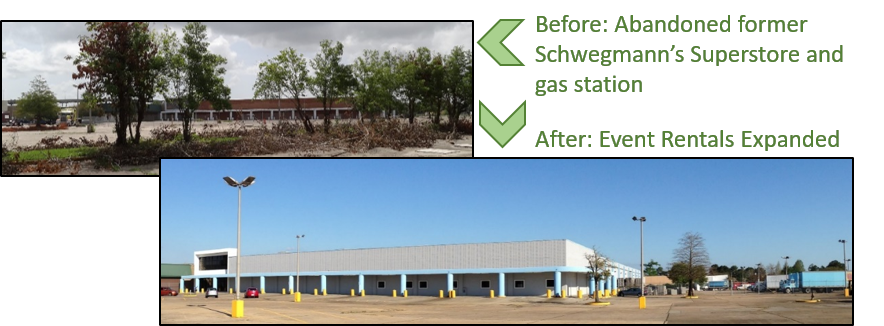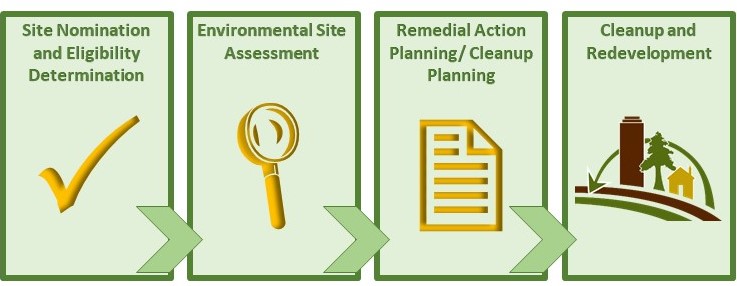 LOUISIANA DEPARTMENT OF ENVIRONMENTAL QUALITY | Secretary Courtney J. Burdette
LOUISIANA DEPARTMENT OF ENVIRONMENTAL QUALITY | Secretary Courtney J. Burdette
 A DEPARTMENT OF THE STATE OF LOUISIANA
A DEPARTMENT OF THE STATE OF LOUISIANA
Brownfield sites are vacant and underutilized properties where actual or suspected environmental issues are a barrier to redevelopment. Under the Office of Environmental Assessment, Remediation Division, LDEQ’s Brownfields Program partners Federal, State and local resources to facilitate the reuse of Brownfield sites throughout the State. Addressing potential environmental issues, especially financial and regulatory hurdles, is often intimidating, creating a barrier to the redevelopment or expanded use of these sites. LDEQ’s Brownfields Program helps convert these properties from community liabilities into community assets by assisting local governments and communities to navigate the environmental process from investigation to cleanup and redevelopment.

Examples of Brownfield sites include (but are not limited to):

Addressing Brownfield sites to facilitate their reuse provides multifaceted benefits. For LDEQ, this program helps address legacy contamination at abandoned sites more expediently. Liability protection for non-responsible parties provides an incentive to developers to repurpose Brownfield sites. Communities benefit by returning properties to tax rolls and increasing the tax base; creating spaces for community uses; adding jobs both during the cleanup and construction phase and after the redevelopment is complete; and reducing maintenance costs by utilizing existing infrastructure such as roads, sewer systems, and water lines. Reusing Brownfield sites also reduces blight in communities and residents’ risk of exposure to environmental contamination. For developers, Brownfield properties may be eligible for additional tax credits/ financial incentives and are often in key locations.
LDEQ partners closely with the U.S. Environmental Protection Agency’s (EPA’s) Brownfield and Land Revitalization Program as well as local Brownfields Programs throughout the state to maximize the impact of EPA Brownfield funding.
EPA’s Brownfield and Land Revitalization Program provides technical assistance, case studies, and funding to help facilitate the reuse of Brownfields sites and incorporate resiliency into the new development. Additional information on EPA’s Brownfield and Land Revitalization Program can be found at: www.epa.gov/brownfields and www.epa.gov/land-revitalization. Louisiana is part of EPA Region 6. Information on EPA Region 6’s Brownfield Program can be found at: www.epa.gov/brownfields/brownfields-and-land-revitalization-texas-new-mexico-oklahoma-arkansas-and-louisiana.
Kansas State University’s Technical Assistance to Brownfields Program (KSU TAB), funded by EPA’s Brownfield Program, supports local Brownfield Programs with tools and information to build a successful program and Brownfield team, successfully apply for funding, and identify economic development resources to facilitate the reuse of Brownfield sites.
LDEQ also partners with local Brownfield Programs to facilitate the redevelopment of Brownfield sites in their communities. Local Brownfield Programs in Louisiana include:
In addition, LDEQ partners with the Louisiana Brownfields Association (LBA), a statewide nonprofit dedicated to helping communities address environmental concerns at Brownfield sites to facilitate their redevelopment.
Brownfield Outreach Events
LDEQ and our partners regularly host outreach and networking events to support the redevelopment of Brownfield sites in Louisiana. Visit the LDEQ Upcoming Events and Trainings page for information on upcoming events and the LDEQ YouTube site for recordings of past events.
Louisiana has a long history with redeveloping Brownfield sites, removing contamination from our communities while spurring economic development, creating jobs, and increasing neighborhood resources. To date, Louisiana has received over $25 million in EPA Brownfield funding including grants to LDEQ and local Brownfield grantees. This funding has been leveraged with other resources to address environmental concerns at over 400 sites statewide. Highlights from across the state include:
Additional information on sites in Louisiana that have benefited from EPA Brownfield funding can be found at EPA’s Cleanups in My Community website: www.epa.gov/cleanups/cleanups-my-community.
In addition to technical assistance, LDEQ’s Targeted Brownfield Assessment (TBA) Program supports community-based Brownfield projects sponsored by a local governmental entity or nonprofit that require assessment and/or cleanup to facilitate the redevelopment/ reuse. Activities conducted under the TBA are paid for by LDEQ’s Brownfield Program. LDEQ hires environmental contractors to perform environmental assessments or may choose to work directly with a local governmental or nonprofit entity. The applicant is responsible for securing access to the site and providing requested information (such as property history and any relevant environmental reports). LDEQ’s TBA Program is focused on sites that have a good chance of being redeveloped in the near future, fit in with the community’s vision for the area, and will spur further revitalization. Funding for LDEQ’s TBA Program is contingent on funding from EPA for LDEQ’s Brownfields Program and the amount available varies throughout the year. We encourage you to contact LDEQ’s Brownfield Coordinator to see what resources are currently available for your specific site and development timeline.
In May of 2020, EPA awarded LDEQ a Brownfield Cleanup Revolving Loan Fund (BCRLF) grant. This grant will allow LDEQ to reinstate our Brownfield Cleanup Revolving Loan Fund Program to provide low interest loans that facilitate the cleanup of Brownfield sites throughout the State. Additional information on the program, including an overview of applicant and site eligibility, is available on our Brownfield Cleanup Revolving Loan Fund page.
LDEQ’s Voluntary Remediation Program (VRP) supports the redevelopment of Brownfield sites by providing a mechanism for property owners, potential owners or others to address contamination at properties and receive a release of liability for past contamination at the site. This release of liability flows to future owners, successors and assigns of the property as well. Entities that are not responsible for the contamination at a site may be able to employ institutional and engineering controls as part of the cleanup, which may reduce cleanup costs to facilitate the reuse of the site.
Note that the VRP is a regulatory program to facilitate site reuse. While the applicant may apply for Brownfield funding through a local, state or federal agency to cover the costs of a VRP investigation/cleanup, the VRP itself is not a funding mechanism.
Beginning in the mid-1990s, EPA provided small amounts of seed money to local governments that launched hundreds of two-year Brownfields pilot projects and developed guidance and tools to help states, communities and other stakeholders in the cleanup and redevelopment of Brownfield sites. The 2002 Small Business Liability Relief and Brownfields Revitalization Act codified many of EPA's practices, policies and guidance. This expanded EPA's assistance by providing new tools for the public and private sectors to promote sustainable Brownfields cleanup and reuse. The 2018 Brownfields Utilization, Investment and Local Development (BUILD) Act reauthorized EPA’s Brownfields Program, and authorized changes that affect brownfield grants, ownership and liability provisions, and State & Tribal Response Programs.
For additional information, please contact LDEQ’s Statewide Brownfield Program Team at Brownfields@LA.gov.